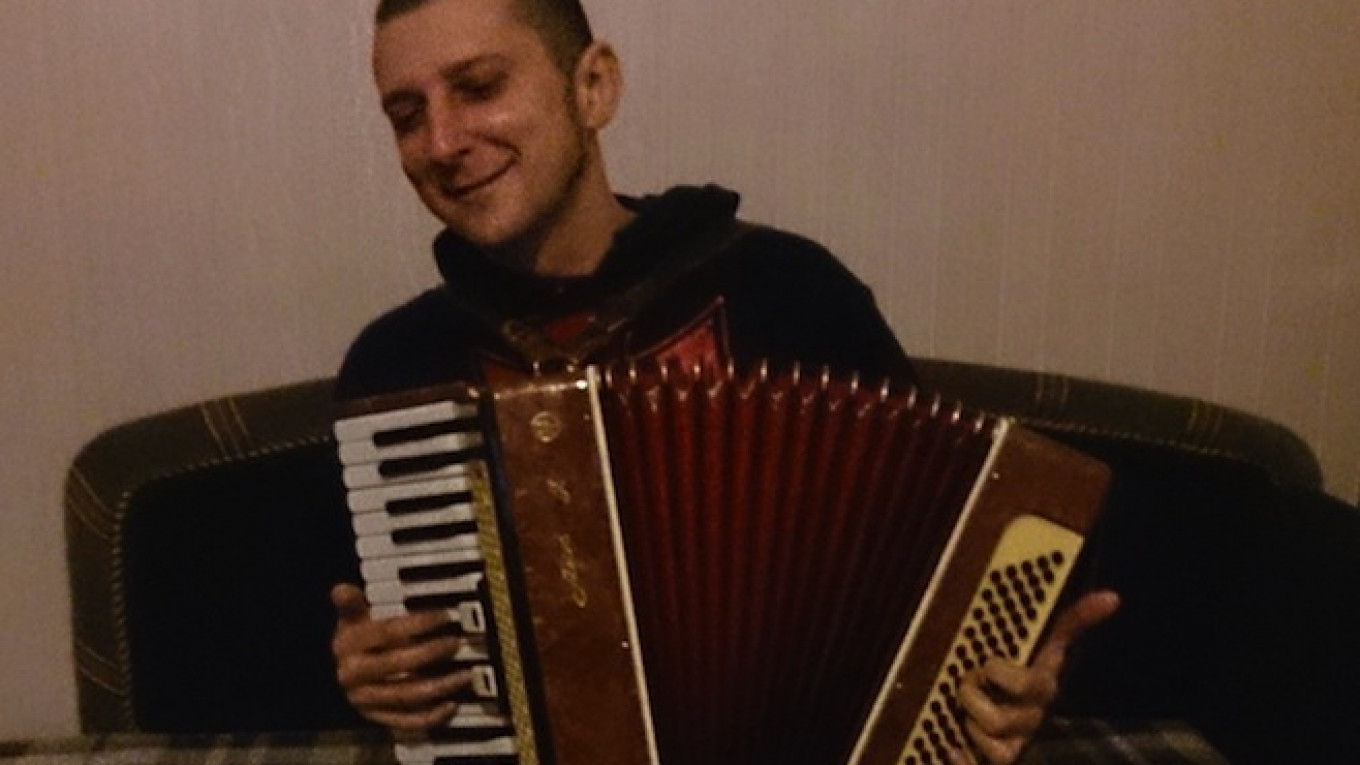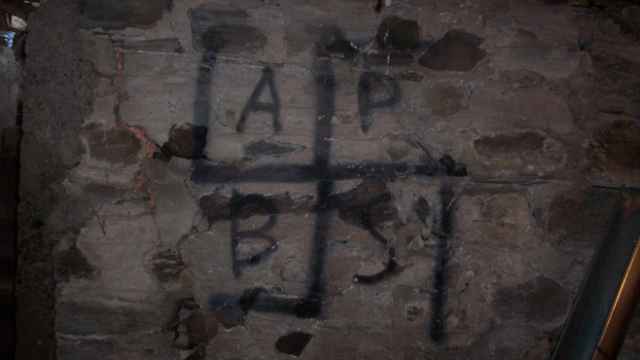A Russian court has found a journalist guilty of “demonstrating Nazi symbols” for publishing a caricature on a social network that lampooned the ruling United Russia party, a news report said.
A court in the central Russian city of Saratov fined local journalist Sergei Vilkov 1,000 rubles ($19) for posting the caricature, which combined the logo of United Russia and a swastika, his employer Obshchestvennoye Mnenie (Public Opinion) magazine reported Monday.
Vilkov was found guilty of a “public demonstration of Nazi symbols,” Public Opinion reported.
Vilkov posted the caricature on his page on the VKontakte social network in November 2011, in response to a nationalist march held in Saratov earlier that month, he said in a recent post on the social network.
During the march, which had been authorized by the city's administration, “its participants en masse raised their arms in a Nazi salute (there is substantial photo evidence),” the journalist claimed in a post this week.
Russia's crackdown on Nazi symbols and symbols perceived as such has grown more severe since that time, however.
A law passed in November 2014 banning the "public demonstration or propaganda" of Nazi symbolism was used earlier this year to prosecute a journalist in the city of Smolensk.
The journalist, Polina Petruseva, also known by her pen name Polina Danilevich, was fined 1,000 rubles for posting online a historic photo of her building's courtyard during the Nazi occupation of 1941-43.
Danilevich said that her grandfather was a child survivor of Nazi concentration camps, and her great-grandparents were resistance fighters, RFE/RL's Russian-language service reported. Her pen name is the surname of her great-grandparents, taken in their honor, she was quoted as saying.
In the wake of her conviction, media watchdog Roskomnadzor issued a statement last week saying that the law only bans actions that constitute both “propaganda and the public demonstration of Nazi attributes and symbols.”
The agency highlighted the conjunction “and” in the quote, pointing out that both criteria need to be met for a publication to be deemed extremist, while a publication that does not involve the propaganda element is legitimate.
Contact the author at [email protected]
A Message from The Moscow Times:
Dear readers,
We are facing unprecedented challenges. Russia's Prosecutor General's Office has designated The Moscow Times as an "undesirable" organization, criminalizing our work and putting our staff at risk of prosecution. This follows our earlier unjust labeling as a "foreign agent."
These actions are direct attempts to silence independent journalism in Russia. The authorities claim our work "discredits the decisions of the Russian leadership." We see things differently: we strive to provide accurate, unbiased reporting on Russia.
We, the journalists of The Moscow Times, refuse to be silenced. But to continue our work, we need your help.
Your support, no matter how small, makes a world of difference. If you can, please support us monthly starting from just $2. It's quick to set up, and every contribution makes a significant impact.
By supporting The Moscow Times, you're defending open, independent journalism in the face of repression. Thank you for standing with us.
Remind me later.






